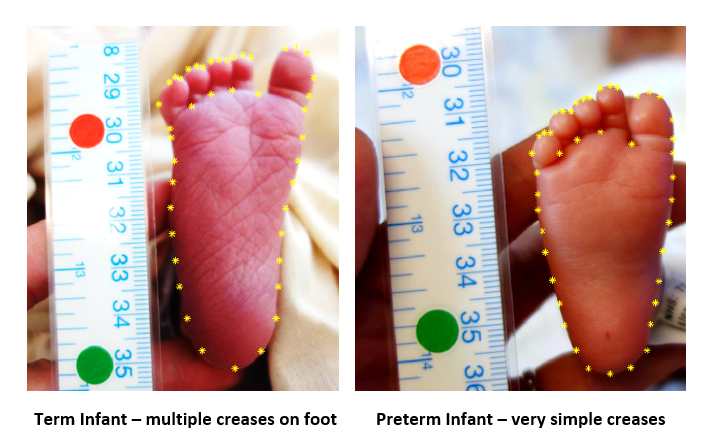Improving neonatal outcomes through machine learning
Clinicians and Computer Scientists are using the very latest machine learning techniques to ‘train’ computers to support clinical decision making in neonatal and paediatric patients. The evolution of computer artificial intelligence opens exciting opportunities for new systems to advance the delivery of healthcare by supporting decision making, increasing diagnostic times and accuracy, and ultimately improving patient outcomes.
Supporting care for premature babies in low-income countries

Global neonatal mortality remains high at 23/1000 live births (UNICEF 2011) with the majority of these deaths occurring in Low-Middle Income (LMI) countries such as India, China and those in Sub-Saharan Africa. Better estimation of gestational age, and hence prematurity, could help improve this through targeted programs tackling prematurity. Antenatal scans are not routinely available in LMIs which is a major roadblock to advancing the care of these babies. Furthermore, 71% of countries don’t have accurate rates of prematurity as they lack the ability to quantify gestational age.
The GestATion project
The clinical trial, GestATion (Estimation of Gestational Age in preterm infants), aims to use machine learning to estimate gestation age in newborn babies using still images of the babies foot, face and ear.
Thanks to the generous support of the Bill and Melinda Gates Foundation, we have been able to develop a combined computer vision and machine learning algorithm that takes images of a newborn baby, such as from the face and foot, and learns about the features to estimate the gestational age. Current clinical estimates can give a gestation 4 weeks either side of the actual gestation. Our system aims to reduce this down to less than 1 week. This will then allow any individual to take newborn images with a smartphone and be able to estimate the gestational age. This information can then link with national databases to provide accurate information on preterm births, and also provide the carer with instant feedback on the care needs of that baby.
Predicting clinical deterioration of preterm babies
Preterm infants can spend months in hospital and often have recurrent clinical deteriorations requiring and escalation of treatment. Experienced teams and parents can often recognise the subtle clinical signs of deterioration in preterm infants which often deviates from the normal pattern of the baby. There is some evidence that interrogation of vital sign information can help identify deterioration quicker than clinical teams.
We are aiming to ‘train’ a computer algorithm to learn about the normal clinical behavioural pattern of an individual baby so that it might then recognise deviation from that pattern and help alert the team sooner. This potentially could allow more timely intervention to avoid significant escalation of treatment and improve patient outcomes.
Experts
Dr Don Sharkey, Associate Professor of Neonatal Medicine leads the multi-disciplinary team that includes Dr Caz Henry, Carole Ward (from Academic Child Health), Dr Michel Valstar and Dr Mercedes Torres-Torres (from Computer Science).